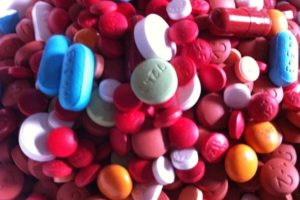From Scientific American: The effectiveness of a particular medical treatment is often highly subjective and dependent on each individual’s definition of the term “effective.” Many drugs and medications lie in the gray area between effective, beneficial and harmless.
“These more dubious entities and their ‘treatments’ flourish in the blurred region between what is effective, beneficial and harmless. Despite all the vast, available evidence that homeopathy is no more effective than a placebo, for example, people who believe they have benefitted from it continue to extol its use, and the alternative medicine market is valued at $34 billion. Ironically, ‘Big Pharma’ has given birth to ‘Big Alterna’—two sides of the same, meaningless coin.
There are, of course, treatments produced through the more stringent channels that also don’t really do very much. Many over-the-counter cough medicines, for example, contain no active ingredient, and doctors have been telling patients not to waste their money for years. Many people will claim, however, they were of some benefit after using them. The key here is that there is yet another distinction to be made between treatments we consider ‘effective’ and merely ‘beneficial.'”















